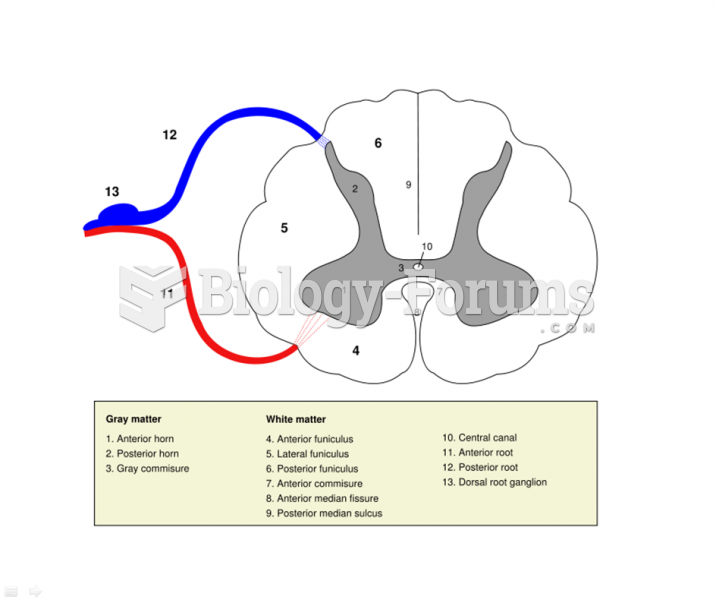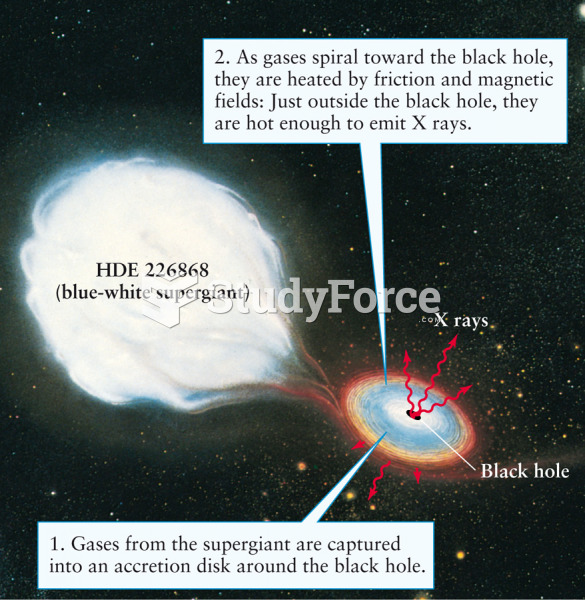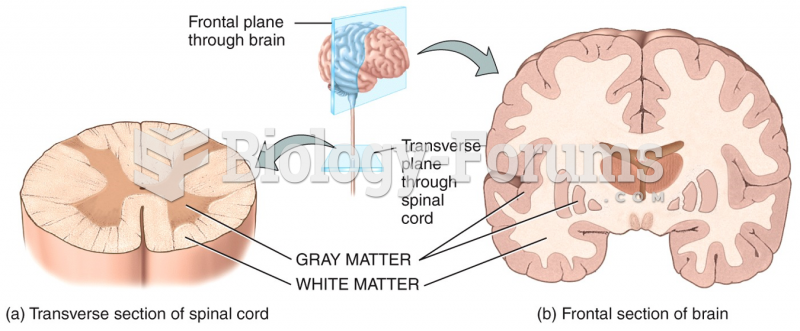|
|
|
Adult head lice are gray, about ? inch long, and often have a tiny dot on their backs. A female can lay between 50 and 150 eggs within the several weeks that she is alive. They feed on human blood.
Increased intake of vitamin D has been shown to reduce fractures up to 25% in older people.
It is difficult to obtain enough calcium without consuming milk or other dairy foods.
Once thought to have neurofibromatosis, Joseph Merrick (also known as "the elephant man") is now, in retrospect, thought by clinical experts to have had Proteus syndrome. This endocrine disease causes continued and abnormal growth of the bones, muscles, skin, and so on and can become completely debilitating with severe deformities occurring anywhere on the body.
The heart is located in the center of the chest, with part of it tipped slightly so that it taps against the left side of the chest.







